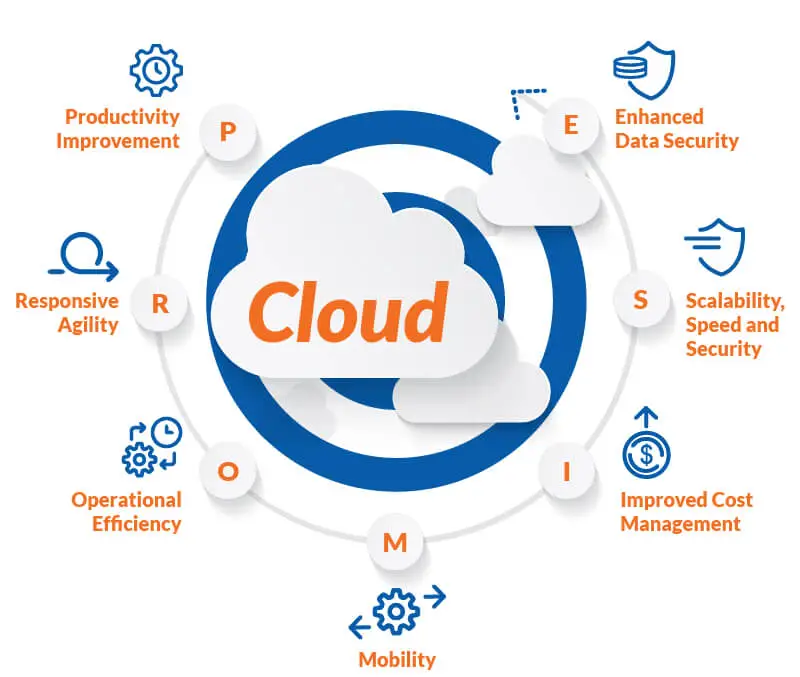Migrating to the cloud can be a game-changer for businesses in terms of cost savings, scalability, and increased efficiency. However, it is important to understand that there are also risks involved in cloud migration that need to be taken into consideration before making the move. In this article, we will discuss some of the potential risks associated with cloud migration and how to mitigate them.
Security Risks
One of the most significant risks of cloud migration is security. When you move your data to the cloud, you are essentially giving control of your data to a third-party provider. This means that you need to ensure that the cloud provider has adequate security measures in place to protect your data from unauthorized access, data breaches, and other security threats.
To mitigate the security risks associated with cloud migration, it is important to choose a reputable cloud provider with a proven track record of security. You should also consider implementing additional security measures such as encryption, two-factor authentication, and regular backups.
Compliance Risks
Another potential risk of cloud migration is compliance. Different industries and countries have different regulations and compliance requirements that need to be followed when handling sensitive data. When you move your data to the cloud, you need to ensure that the cloud provider is compliant with the relevant regulations and standards.
To mitigate compliance risks, it is important to choose a cloud provider that has experience working with companies in your industry and understands the relevant regulations and compliance requirements. You should also ensure that the cloud provider has the necessary certifications and compliance measures in place.
Performance Risks
Cloud migration can also introduce performance risks. While the cloud can offer increased scalability and flexibility, it can also be subject to performance issues such as latency, network congestion, and bandwidth limitations. These issues can have a negative impact on the performance of your applications and services.
To mitigate performance risks, it is important to perform thorough testing and optimization before and after migrating to the cloud. You should also choose a cloud provider that can offer the necessary resources and infrastructure to meet your performance requirements.
Vendor Lock-in Risks
Vendor lock-in is another potential risk of cloud migration. When you move your data to the cloud, you become dependent on the cloud provider for your infrastructure and services. This can make it difficult to switch to a different provider in the future if you are not satisfied with the service or pricing.
To mitigate vendor lock-in risks, it is important to choose a cloud provider that offers flexibility and interoperability with other providers. You should also ensure that your data is portable and can be easily moved to a different provider if necessary.
Cost Risks
Finally, cost is another potential risk of cloud migration. While the cloud can offer cost savings in terms of reduced infrastructure and maintenance costs, it can also be subject to unexpected costs such as data transfer fees, storage fees, and additional services.
To mitigate cost risks, it is important to perform a thorough cost analysis before and after migrating to the cloud. You should also choose a cloud provider that offers transparent pricing and billing, and consider implementing cost management tools and strategies.
Data Breaches
One of the biggest risks associated with cloud migration is data breaches. When data is stored in the cloud, it is vulnerable to cyber-attacks, which can result in the theft of sensitive information. It is essential to ensure that the cloud provider has robust security measures in place to protect your data.
At our company, we only work with cloud providers that have a proven track record of security and have implemented measures such as encryption, two-factor authentication, and regular security audits to ensure the safety of our clients’ data.
Data Loss
Another risk associated with cloud migration is the potential loss of data. Although cloud providers have backup and disaster recovery measures in place, there is always a risk that data can be lost due to hardware failure, human error, or natural disasters.
To mitigate the risk of data loss, our company implements a multi-layered backup strategy that includes regular backups, off-site backups, and testing of the backup and disaster recovery process to ensure that data can be restored quickly and efficiently in the event of a disaster.
Compliance Issues
Compliance is a critical concern for businesses, especially those in highly regulated industries such as healthcare and finance. Cloud providers must comply with various regulations such as HIPAA, GDPR, and PCI-DSS, to name a few. Failure to comply with these regulations can result in significant fines and legal consequences.
At our company, we only work with cloud providers that comply with the necessary regulations and have implemented strict security and privacy measures to ensure that our clients remain compliant.
Conclusion
In conclusion, cloud migration can provide many benefits for businesses, but it is important to understand the risks associated with it. Data breaches, data loss, vendor lock-in, and compliance issues are some of the risks that businesses may face when migrating to the cloud.
At our company, we understand the importance of mitigating these risks and work with cloud providers that have robust security measures in place, implement a multi-layered backup strategy, offer flexibility and open standards, and comply with necessary regulations to ensure that our clients’ data and applications are safe and secure.
If you are considering cloud migration for your business, it is important to partner with a trusted and experienced provider that can help you navigate the risks and make the transition as smooth as possible.
